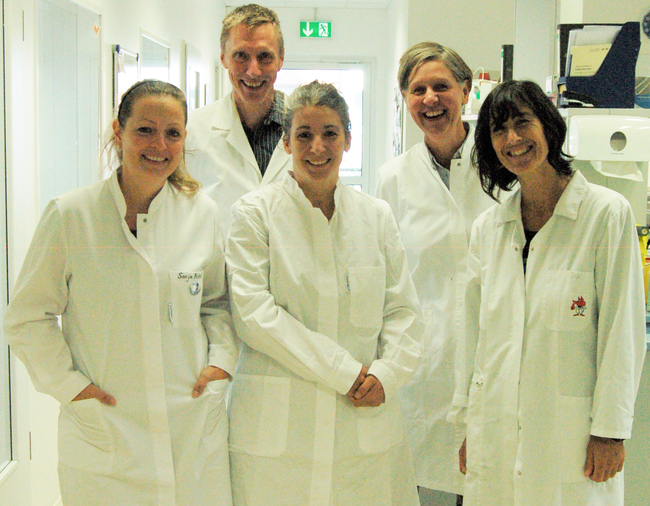14/08/2019 | Since the beginning of the month Dr. Véronique Helfer is in charge of the ZMT Biology Laboratory consisting of four members of staff. She will assume these management responsibilities in addition to her role as scientist in the Mangrove Ecology working group at ZMT.
“The biology laboratory is an important pillar of ZMT's research infrastructure, and I am looking forward to working more closely with the biolab team, whose experience and expertise I highly value. My aim is to go on supporting ZMT scientists in their research activities, with the current methods implemented within our facilities, but also to diversify our portfolio, to answer the needs of the scientists and to keep up with the new analytical developments that will help ZMT pursuing its mission.” says Véronique Helfer. “Eager to always learn and implement new things, I envision that both my activities, as lab manager and scientist, will nourish each other.”
The biologist (trained in botany, zoology and ecology) has been working as a postdoctoral fellow at ZMT since 2014. Since her early career, Véronique Helfer has diversified herself and adopted an integrative and multidisciplinary approach, encompassing various disciplines, from molecular biology, chemical ecology to distribution modelling. Based on these approaches, her recent research activities within the mangrove ecology working group at ZMT aim at understanding how biodiversity (microbial, faunal and floral) supports ecosystem processes and services at the local and global level, using high-throughput techniques such as eDNA metabarcoding and environmental metabolomics. Ultimately, the results and derived knowledge from these research activities should feed into spatial conservation prioritization tools to develop and propose best management options, to ensure biodiversity and ecosystem integrity preservation, while supporting the sustainable development of local communities.
For the future, she envisions to include additional genetic and omics approaches in her research, to understand responses of ecosystems to environmental stress on the short- and long-time scale. For this, she will strongly rely on the lab facilities and molecular techniques that are available within the biology laboratory, such as the environmental DNA lab that the Mangrove Ecology group had already implemented at ZMT in close collaboration with the biolab team.
Véronique Helfer received her PhD from the University of Lausanne (Switzerland), where she specialised in population genetics, phylogeography, population monitoring and species distribution modelling.
Sonja Peters, Dr. Achim Meyer, Dr. Véronique Helfer, Constanze von Waldthausen and Stefanie Bröhl | Photo: Eike Strubelt





